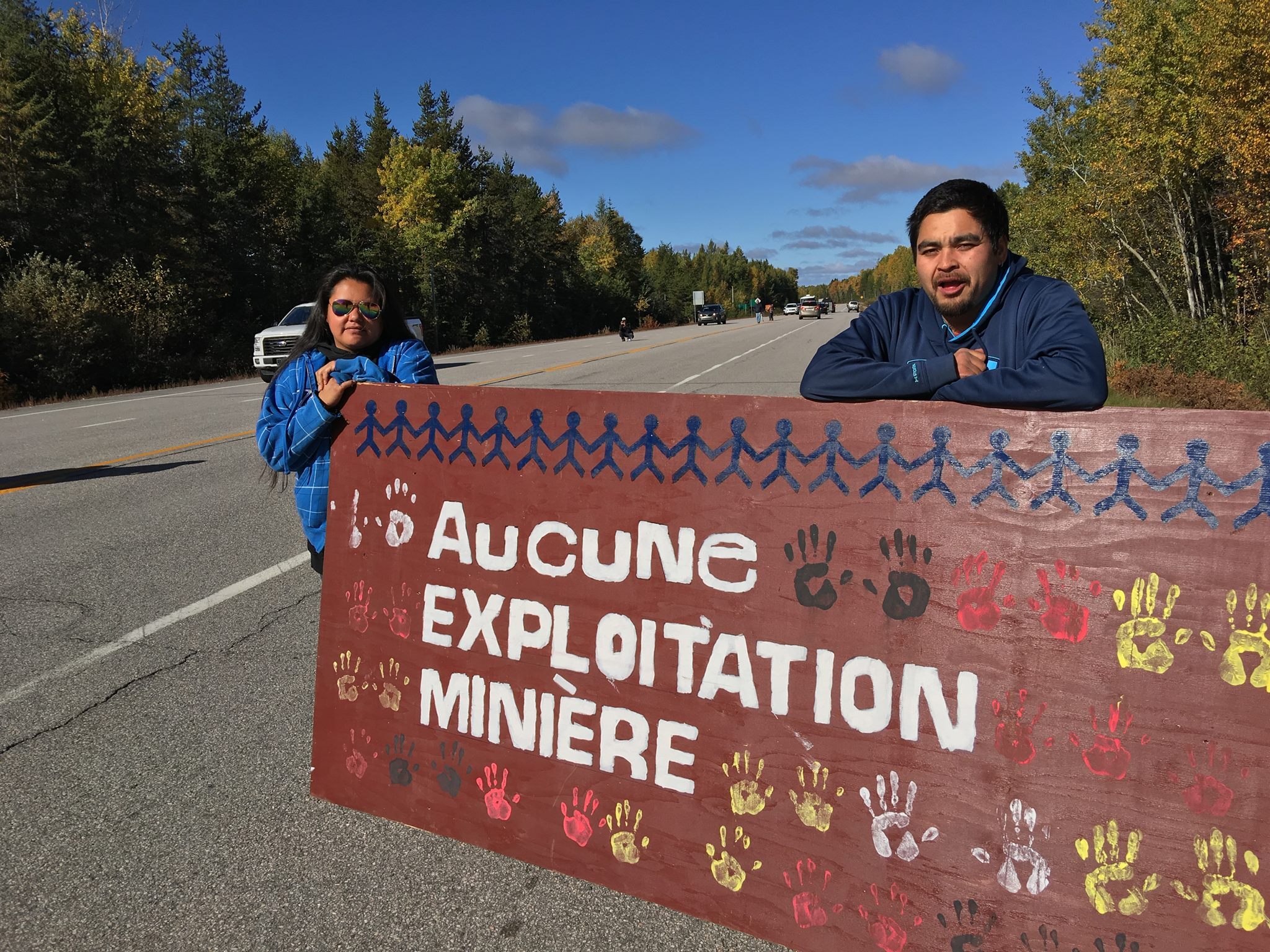This open letter was originally published in French in Le Devoir here.
Twice in recent weeks, the Québec government has missed historic opportunities to ensure that its mining laws and practices respect the rights of Indigenous Peoples. First, the province rejected proposed amendments to its Mining Bill, hastily adopting the bill without including important changes that would better uphold Indigenous rights. Second, the province appealed a landmark ruling that found the rights of Indigenous Peoples had been violated by the mining sector.
We cannot remain silent in the face of these decisions to preserve a system that dispossesses Indigenous Peoples and maintains the mining industry’s stranglehold on the territory. Québec mining companies cannot claim to be green nor responsible if the laws and practices which govern them run contrary to Indigenous rights. The future of the territory and Québec’s international reputation are at stake.
On November 21, the Attorney General of Québec appealed a Superior Court ruling in a case filed by the Mitchikanibikok Inik First Nation, also known as the Algonquins of Barriere Lake. After nearly five years in court, the Superior Court finally recognized that for decades, the Québec government had failed to meet its constitutional obligation to consult the First Nation when granting mineral exploration claims in Mitchikanibikok Inik territory. Rather than acknowledge this ruling and commit to reform Québec laws to be in line with its Constitution, the province appealed the decision, deciding to uphold a mining framework that gives precedence to the rights of mining companies operating in Indigenous territories. Québec could have backed down and taken its cue from British Columbia, who also lost a similar court battle last year. Instead of choosing to continue with legal action, BC is now working towards reforming its mining laws.
This decision to challenge the Court's ruling was all the more scathing as it came the day after the National Assembly concluded its study of Bill 63, which was announced as a "modernization" of the Mining Act.
Days later, on November 27, the National Assembly hastily adopted Bill 63 without incorporating any amendments related to the Superior Court ruling on respecting the rights of Indigenous Peoples in the mining sector. On the contrary, the government chose to systematically reject any proposed amendments to this effect put forward by the other parties.
Actions speak louder than words. While the Québec government committed itself towards reconciliation with Indigenous Peoples, it is clear these gestures don’t extend towards anything challenging the province’s grip on natural resources.
The government has no dignified alternatives to offer Indigenous Peoples. The updated Mining Act invites Indigenous nations and communities to come to an agreement on where mining activities should or should not take place, but this does not include the vast parts of their territories already under mining claims. Québec prefers to consult Indigenous Peoples for certain "impact-causing exploration works”, but only after companies have been granted their mining titles.
Québec's economic development has always been based on the exploitation of land. But Indigenous Peoples cannot be separated from the inextricable, cultural, identity-based, timeless and sacred bond that unites them to this very territory.
Quebecers understand this. According to an August 2022 Léger opinion poll, 78% of the province's residents agree with "requiring the consent of local populations (municipalities and Indigenous nations) before authorizing any mining activity on their territory."
Respecting Indigenous rights is more critical than all the so-called ‘critical minerals’ that exist now or in the future. The development of genuine collective wealth and the future of our territory depend on it.
The answer to this mining injustice, which dates back to the early days of colonial Québec, will have to come in the form of legislation – whether the courts impose it or not. The question today is who will have the decency to do so... and when.
MiningWatch Canada are co-signing this open letter with over 225 people from many Indigenous Nations, professors from numerous universities, independent mining experts, environmental organizations and citizens directly affected by mining projects in Quebec and across the continent
The full list of signatories is available here.
